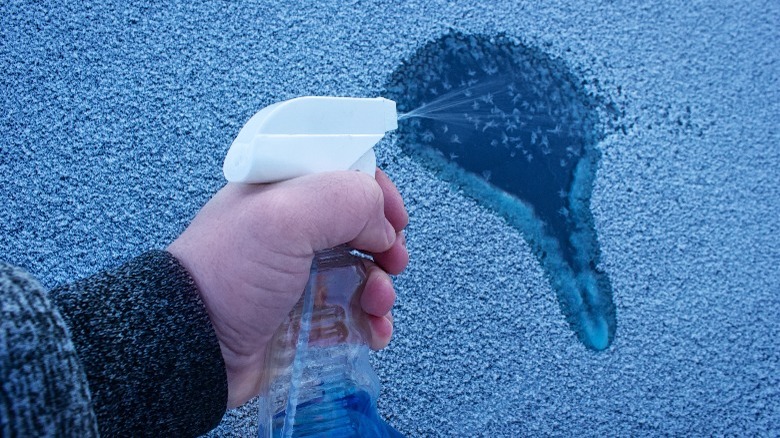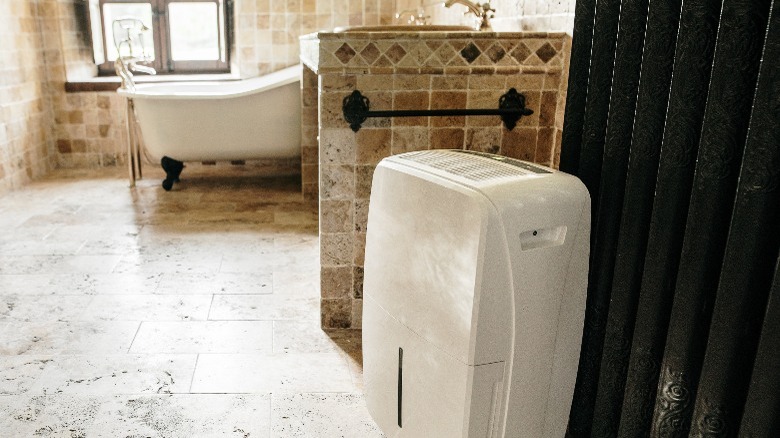Is Salt Really The Secret To Frost-Free Windows This Winter?
Frost on windows can create a picturesque, wintery ambiance reminiscent of scenes from Christmas cards. While nice to look at, it doesn't do homeowners any good. To combat this, many turn to a salt solution to prevent frost formation.
Although modern houses with double-pane windows don't typically face this issue, older homes are still prone to it. The aesthetic appeal of frost is offset by practical concerns: it can obscure your view, and as it melts, it may damage both the glass and the window frame due to moisture accumulation. This moisture can also lead to mold growth, posing a challenge in maintaining clear and healthy windows.
So the next question is, is salt the solution for frost-free windows in your home? We commonly observe trucks spraying saltwater on sidewalks and icy roads to prevent slipping during winter. Does this method translate effectively to residential windows, though? Fortunately, the answer is yes.
How salt water prevents ice from forming
Using salt to prevent frost on your windows is relatively straightforward. Mix salt with water to create a saltwater solution and use a sponge to apply this to your windows. Allow it to dry, and you're done!
So why does this method work? Normally, water freezes at 32 degrees Fahrenheit. However, adding salt lowers this freezing point to around 15 degrees Fahrenheit. Salt interferes with the formation of ice crystals, keeping the water slushy and only allowing it to freeze below 15 degrees. This also means that while this saltwater hack works in areas that aren't that cold, homes in frigid environments where temperatures consistently fall below 15 degrees won't benefit from this hack.
Also, it's important to remember that if you plan to use this trick on your windows or to de-ice sidewalks and pathways, simply scattering salt isn't effective; you need to dissolve the salt in water. The effectiveness of the salt solution in lowering the freezing point of water is directly related to the amount of salt you add to the water. This is based on a principle called freezing point depression, where the freezing point of a liquid is lowered by adding another substance; in this case, salt.
Alternatives to salt in preventing frost
If you live in a very cold environment, wiping your windows with salt water won't prevent frost from forming on your windows. Don't worry, though. There are other things you can do.
Firstly, keeping your home warm is crucial. If adjusting your thermostat makes you worry about high energy bills, consider the potential damage that excessive moisture and cold can cause to your windows. Using a space heater could be a practical solution in areas where windows are more prone to frosting.
Another critical factor in frost formation is the humidity level inside your home. High indoor humidity can contribute to window frost. If there's too much moisture inside your house, it's a sign that you should run a dehumidifier in your house. By reducing the humidity, you not only prevent frost on windows but also create a more comfortable living environment. If you have the budget for it, replacing your single-paned windows with double-paned ones can be a tremendous upgrade. Not only will it prevent frost but double-pane windows also increase energy efficiency by 50%.


